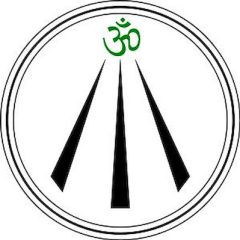![]()
Dawn is in love with Ben. She’s also in love with Ryan. Equally, or so she believes.
How can this be? This is not at all unusual, but what usually happens is that one or both of her suitors compels her to make a choice. In our case here, this is not so simple. In Ben’s case: he has known her since they were infants. They literally grew up together and have always loved each other. They are “soul mates.” Their families have always believed they would get married some day. They know each other primarily through their families attendance at a Summer Camp in Northern California. She lives in the Bay Area. He lives in Orange County. They really are in love, but they also normally live 500 miles apart and see each other once a year, for one month.
She met Ryan in the Bay Area, where he filled in a gap while Dawn and Ben were away from each other. Now they are all at UC Berkeley, and the children of the two families (Ben and Dawn’s) are living together. Ryan is also enrolled at Berkeley. Also to complicate matters, Ben is in love with Ariande who was adopted into his family and also is residing at the Berkeley house. So Ben and Dawn and Ryan have a meeting about how things should work out. Ryan is head over heels in love with Dawn. Dawn feels like she should try to stick with Ryan, since he applied to Berkeley to be near her. Now by this time, both Ryan and Ben have declared their love for Dawn. Ryan has declared that if Dawn is with him, she must never kiss, touch or have sex with Ben. Ben is fine with that, as he only wants Dawn to be happy (and besides he’s with Ariande).
The question is: who really loves Dawn?
Ben does. Ben is practicing what polyamorists call “compersion.” This is the rejection of jealousy in favor of wishing the best for a person one loves. It is best summed up this way: “Love is that condition in which the happiness of another person is essential to your own… Jealousy is a disease, love is a healthy condition. The immature mind often mistakes one for the other, or assumes that the greater the love, the greater the jealousy.” — Robert A. Heinlein
In this case Ben believes that Dawn would be happier, in the long run, with Ryan. Because he loves her, he is releasing her to be with Ryan. On the other hand, Ryan does not really love Dawn. He wants to possess her; to own her. To make her his exclusively. She would like to be with both of them, but Ryan will have none of that. He’s not willing to sacrifice his ownership for her greater happiness. This is the way it usually is, right? We’ve been taught all of our lives that “there can be only one,” and culture and art have even conspired together to enforce this societal belief: one man, one woman.
I propose that this is not love. This is slavery. If you own another person, even it that person gives themselves to you freely; even if you “love” that person, it’s not really love. It’s slavery. Most domestic violence can be directly attributed to this idea. The man (or in some cases, the woman) feels that his wishes are being ignored, or outright disobeyed by his/her spouse. So, since the spouse is his/her “possession” he/she gets to punish them some way. For a woman this could mean withholding sex. For a man it could mean rape, or violence, or a violent rape, or even murder. The Thirteenth Amendment to our Constitution reads: “Neither slavery nor involuntary servitude, except as a punishment for crime whereof the party shall have been duly convicted, shall exist within the United States, or any place subject to their jurisdiction.”

